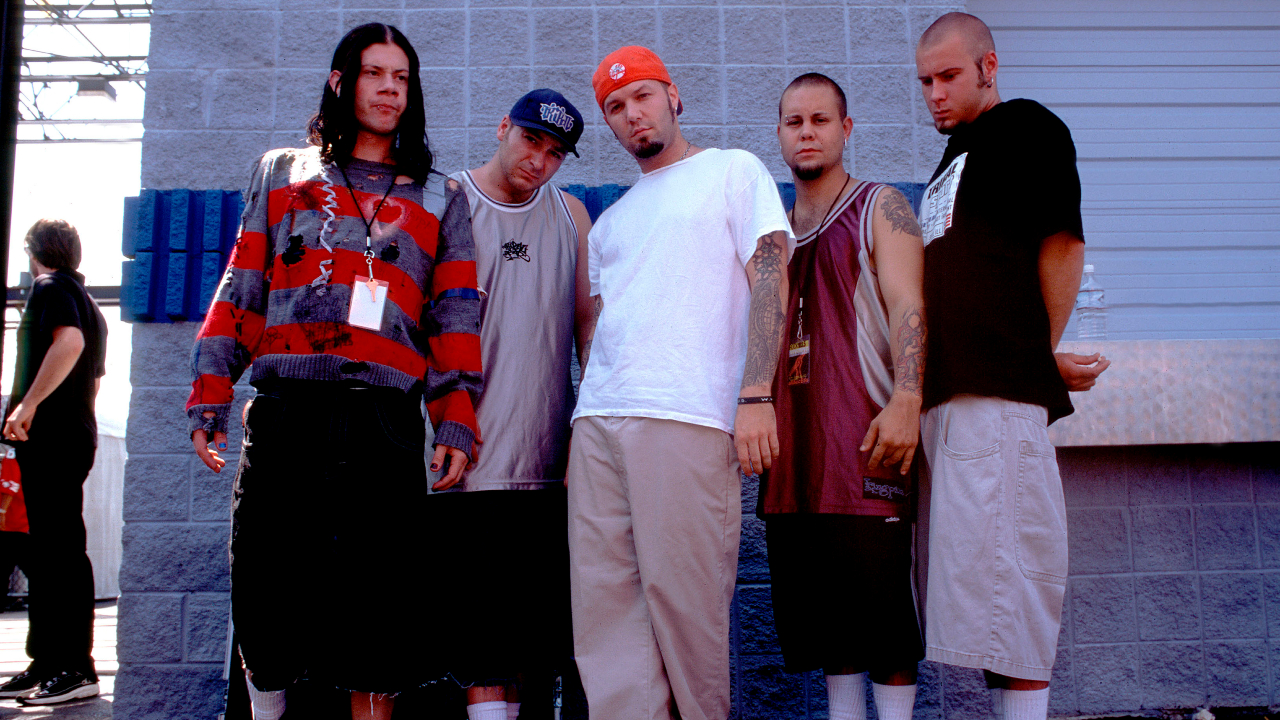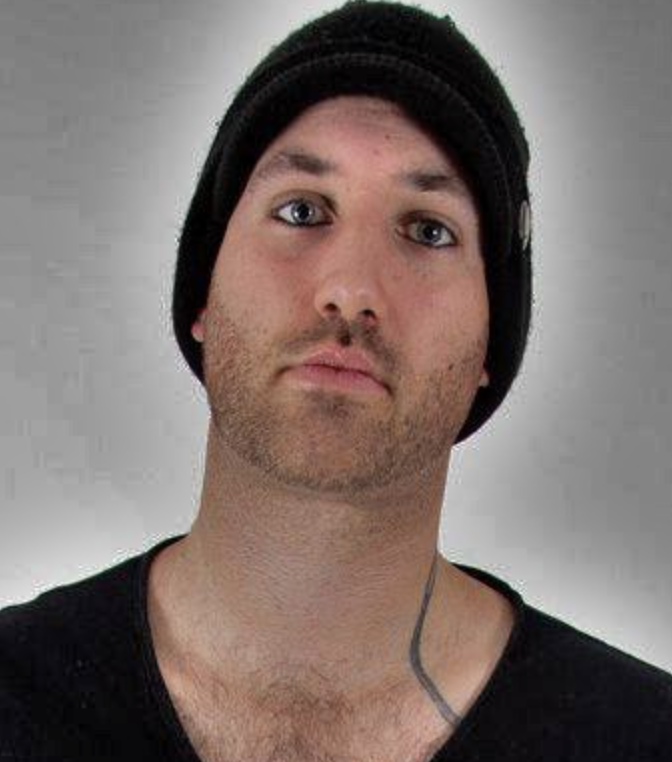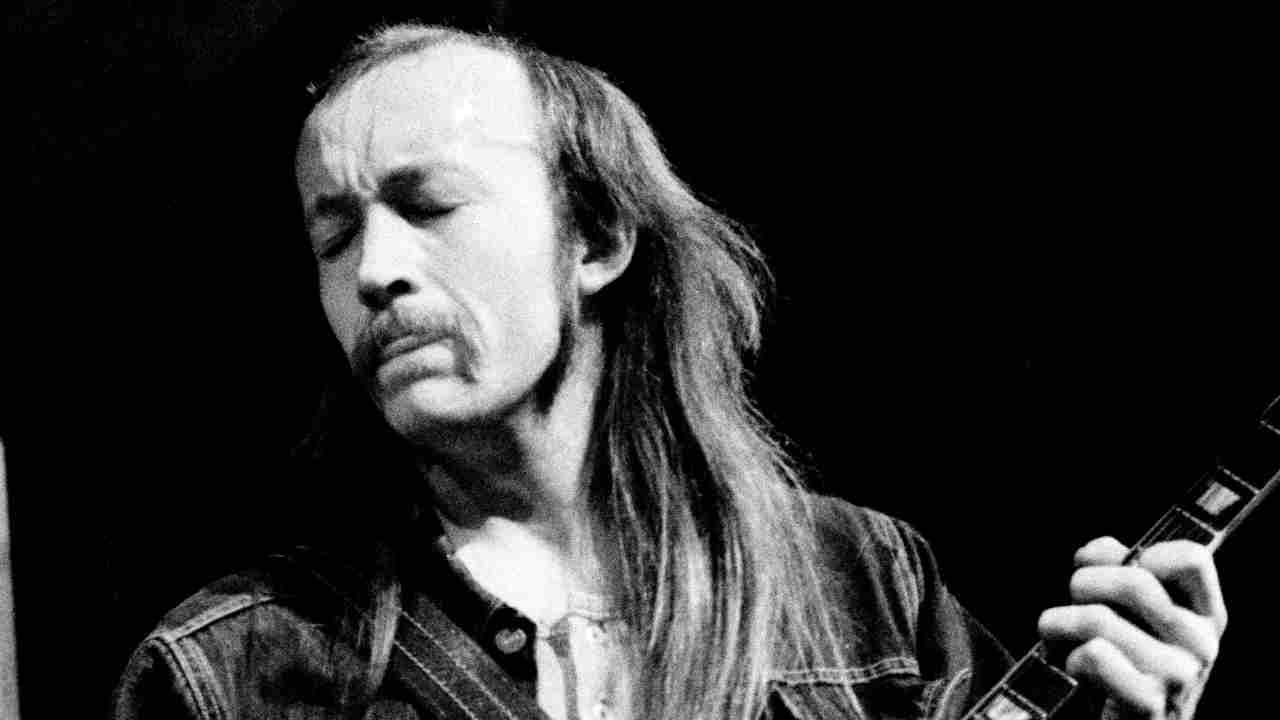Three Dollar Bill, Y'all at 25: why Limp Bizkit's riotous debut album might just be their best
Before they became one of metal's most divisive bands, Limp Bizkit's debut singled them out as one of heavy music's most exciting young names

Select the newsletters you’d like to receive. Then, add your email to sign up.
You are now subscribed
Your newsletter sign-up was successful
Want to add more newsletters?
Limp Bizkit weren’t always the enemy of 'true' metal fans, you know. They certainly weren’t always the corporate, MTV sellouts that their most vicious commentators liked to paint them as. Before the nookie, before the chocolate starfishes, before Woodstock '99, before duetting with Christina Aguilera on MTV, before the red cap was getting whacked by the critics, Limp Bizkit were actually considered quite cool by many metal fans.
No, really, hear us out!
It starts, like many things to do with heavy music in the 90s, with Korn. Back in 1995, Limp Bizkit were a hotly-tipped local band around the Jacksonville, Florida scene, when Korn rolled into town supporting Sick of it All.
“I was homeless for a few years and just lost,” Bizkit vocalist Fred Durst explained on the Metal Evolution documentary. “Skateboarding and making crappy rap demos. I didn’t think anything was going to happen for me, but then I remember hearing that Korn were coming to town, and I said, ‘This is my chance, this is my shot. I gotta give these guys my tape.’ After the show they just walked out in the crowd and stood there. We started drinking some beer and I said, ‘I do tattoos, I’ll give you a free tattoo!’ For some reason they were down with going.”
The tattoos that Durst gave Korn weren’t the best - “he wasn’t a great tattoo artist” Korn frontman Jonathan Davis sniggers on the same documentary - but it would prove a vital moment in young Fred's career.
“I tattooed [Korn guitarist] Brian Welch, Head,” smiles Durst, “and they bust my balls to this day, because I wrote ‘Korn’ and they say it says ‘Horn’. Still, I gave them a tape, and Fieldy [Korn bassist] responded and said, ‘I’m gonna let a few people hear this.’ so then I get a call from Ross Robinson. To me it was like, ’Woah! Ross Produced Korn’s record, this is unbelievable!'”
Robinson was impressed enough by what he had heard to agree to produce the first Bizkit album, with the band’s patronage from Korn helping to increase their profile and earn them a deal with Interscope subsidiary Flip Records.
The latest news, features and interviews direct to your inbox, from the global home of alternative music.
“I kinda felt there was like a suicidal punk rock thing to it,” Robinson said. “Fred was singing about stuff like being pissed off at his neighbour and wanting to pee in their yard, and just really adolescent things that made you wanna wreck something.”
Three Dollar Bill Y’all was recorded at Robinson’s Indigo Ranch studio in early 1997, but before the album was released, Bizkit headed out to Europe with, you guessed it, Korn, as the opening band on a bill that also included alt-metal legends Helmet.
This was most people’s first exposure to Limp Bizkit, and they made quite the impression. This writer attended the June 3, 1997 show at Brixton Academy, where Hemet pulled out, leaving Limp Bizkit to be main support at the sold out, 5,000-capacity show. Despite no one in the building having heard a second of recorded music by the Limp Bizkit, they stormed on like headliners and left to a hero's response. Their full-on, rap-centric take on the nascent nu metal movement seemed ludicrously exciting and fresh, with guitarist Wes Borland, rocking a corset, no-less, diving into the crowd at the end of a rapturously-received cover of George Michael’s Faith. For a support band with no album out, it was a mightily impressive statement.
Durst would appear again later that night, providing vocals for Korn’s cover of Ice Cube’s Wicked alongside Bizkit’s DJ Lethal. As great as Korn were, a lot of people walked away that night with Limp Bizkit on their mind and a new favourite up and-coming band to keep an eye on.
Around a month later, Three Dollar Bill Y’all was released on July 1 1997. Initially, it didn’t make a massive impact on the wider world - though those who did hear it, loved it. It's easy to understand why they did; Limp Bizkit have never sounded as urgent, as angry or as heavy as they do on this record. Listening to Three Dollar Bill Y’all with the benefit of hindsight, it’s clear why the band had to smooth off some rough edges to connect to the wider world, but with Robinson’s production giving the band a rawer, scratchier sound, Borland’s guitars harsh and discordant where they would become smoother and bolder and the rhythm section booming and bleeding out into the red, it's still comfortably their most dangerous-sounding effort.
The real revelation, though, was Durst. In years to come he would be characterised by Bizkit haters as a poor rapper, a terrible lyricist, a man with next-to-no vocal ability. Nonsense, of course, and Three Dollar Bill Y’all still proves that he can do all of the things that purists doubted him over. His performance is legitimately fantastic; we get bloodcurdling screams at the end of Pollution that are as harsh and raw as any you care to mention, his pace and wordplay on the excellent Counterfeit shows he can rap with speed and dexterity and, although the lyrics on Stuck might sound pretty gross these days, his cadence and the ingenuity he shows on the vocal patterns are very impressive. He even chucks in some memorable melodic vocal lines, inspired by Tool’s Maynard James Keenan on Nobody Loves Me. It’s arguably the best Fred Durst has ever sounded.
After the album was released, Bizkit headed out on the road, taking in the 1997 Warped Tour, Ozzfest '98, opening for Soulfly in Europe (before Fred and Max fell out and Bizkit departed the tour midway through the run) and, of course, on the first ever Family Values tour alongside Korn, Ice Cube, Rammstein, Orgy and Incubus.
It was all plodding along nicely enough, but the rise of Limp Bizkit truly rocketed when the fourth single from the album was released: the aforementioned cover of Faith. Not only did it give Limp Bizkit’s career a huge boost, but it also kickstarted the trend for 80s cover versions by metal bands of the era. Yup, you can blame this moment in time for giving us Coal Chamber’s Shock the Monkey, Machine Head’s Message in a Bottle, Orgy’s Blue Monday, Godhead’s Eleanor Rigby, Spineshank’s While My Guitar Gently Weeps and the rest. Cheers, lads.
Regardless, Limp Bizkit’s obnoxiously punk version of the song became a hit on MTV and Three Dollar Bill Y’all, a good 18 months after its release peaked at number 22 on the US Billboard top 200 and went on to be certified twice Platinum, over two million copies sold in the US. Durst even claimed that George Michael himself had given Bizkit his seal of approval for the song: “I heard he loves the song,” he told Rolling Stone. Not bad for a homeless skater who couldn’t spell Korn.
Of course, Limp Bizkit have gone on to sell many, many more records, and their legacy is certainly a complex one: they became the single most divisive band in heavy music; they wrote some of the most instantly recognisable songs of their era that still continue to connect with audiences today; they were a gateway for millions into the world of heavy metal whilst also being considered responsible for its artistic demise at the time.
But, as weird as you might find to think it now, upon arrival, we pretty much all agreed that Limp Bizkit were just a really good, really exciting young rap metal band with a shit tonne of potential and a killer debut album in their pocket. Happy 25th, then, to Three Dollar Bill, Y’all, it might be the least high-profile album in the Bizkit back catalogue, but for many of us, it still remains the very best.

Stephen joined the Louder team as a co-host of the Metal Hammer Podcast in late 2011, eventually becoming a regular contributor to the magazine. He has since written hundreds of articles for Metal Hammer, Classic Rock and Louder, specialising in punk, hardcore and 90s metal. He also presents the Trve. Cvlt. Pop! podcast with Gaz Jones and makes regular appearances on the Bangers And Most podcast.
